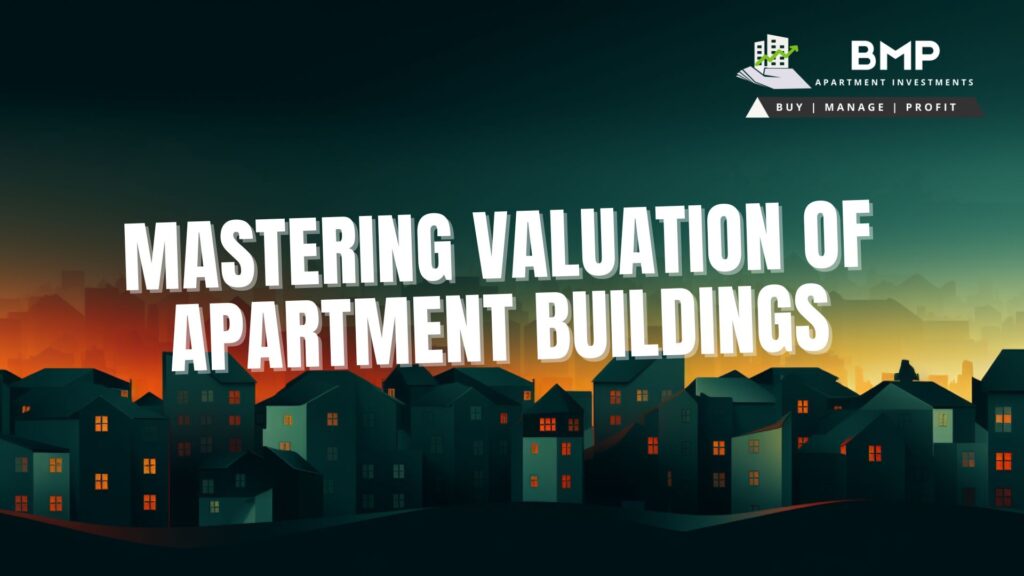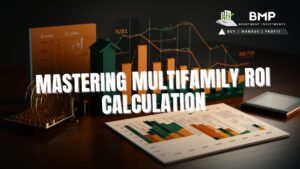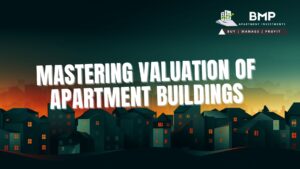In the realm of real estate investment, possessing the skill to accurately underwrite the value of an apartment building is a true asset, separating the good opportunities from the truly exceptional ones. As an investor, comprehending how to evaluate an apartment building’s value is paramount. This involves leveraging the triad of assessment methods: the sales approach, the replacement approach, and the income approach – each offering distinct insights into a property’s value.
The Sales Approach: Gaining Insight Through Comparison
At the core of the sales approach lies the art of comparison. This method revolves around analyzing recent sales of similar apartment buildings in the vicinity. Think of it as real estate’s version of “show me the numbers.” By dissecting properties that closely resemble your target investment, you can deduce a logical value for your apartment building.
For instance, imagine you’re evaluating a 10-unit apartment building in a suburban area. You discover that a similar property, with comparable unit sizes and amenities, was recently sold for $1.5 million. This gives you a solid reference point to estimate the value of your building.
The Replacement Approach: Estimating the Cost Factor
If the sales approach acts as your compass, the replacement approach serves as your blueprint. This method revolves around approximating the cost of constructing a new apartment building with similar specifications. It delves into construction costs, materials, and various factors that contribute to a property’s value.
Let’s say you’re assessing a vintage apartment complex. By accounting for current construction expenses, you estimate it would cost $2 million to rebuild a similar structure from scratch. This approach helps you gauge the property’s value by considering the expenses and intricacies of a new construction project.
The Income Approach: Deciphering Cash Flow Potential
They say the true value of real estate lies in its income-generating capacity. Here, the income approach comes into play. Rather than focusing solely on sales or construction costs, this method emphasizes the property’s ability to generate rental income. For apartment buildings, where cash flow is pivotal, this approach offers a significant viewpoint.
Imagine you’re evaluating a 20-unit apartment building with an annual rental income of $300,000 and operating expenses of $100,000. This gives you a Net Operating Income (NOI) of $200,000. Applying a cap rate of 8%, you estimate the property’s value to be around $2.5 million. This approach quantifies the property’s value based on its financial performance.
A Holistic View: The Power of Triangulation
In reality, prudent investors don’t rely solely on one valuation approach; they harness the power of triangulation. By evaluating a property through multiple lenses – sales, replacement, and income – investors gain a comprehensive perspective of its value. This multi-faceted approach reduces the risks tied to a single method, as it incorporates both market dynamics and the property’s inherent potential.
Comparative Table: Three Valuation Approaches
| Valuation Approach | Method Description | Example Scenario |
|---|---|---|
| Sales Approach | Compares recent sales of similar properties | Comparable property sold for $1.5 million |
| Replacement Approach | Estimates cost of constructing a similar property | Rebuilding would cost $2 million |
| Income Approach | Evaluates income-generating potential of property | Annual rental income of $300,000, cap rate 8% |
Conclusion: Crafting the Valuation Symphony
Proficiently underwriting an apartment building’s value resembles conducting an orchestra. Each valuation approach functions as an instrument, contributing a distinct melody to the symphony of valuation. The sales approach provides context, the replacement approach establishes structure, and the income approach introduces financial harmony. By orchestrating these methods harmoniously, investors craft a comprehensive assessment guiding them toward remarkable opportunities and successful investments within the apartment building arena.











